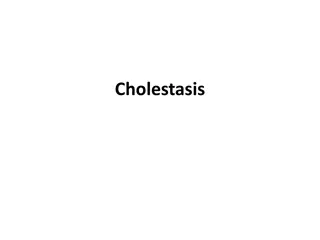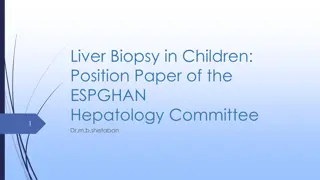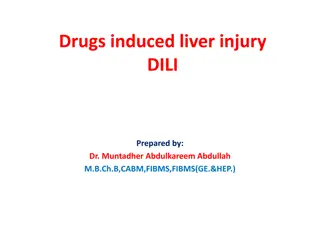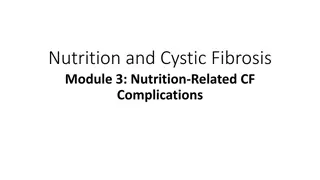Understanding Cholestasis: Etiology, Clinical Manifestations, and Complications
Cholestasis is characterized by reduced bile flow and elevated direct bilirubin. It is critical to differentiate it from neonatal jaundice. In conditions like biliary atresia and 1-antitrypsin deficiency, early diagnosis and intervention are crucial to prevent liver failure. Clinical manifestations
5 views • 14 slides
Evolution of Liver Biopsy in Children: ESPGHAN Position Paper
Liver biopsy plays a crucial role in diagnosing, staging, and prognostic evaluation of liver diseases in children. Indications for liver biopsy include diagnostic, prognostic, and monitoring purposes. Specific scenarios like neonatal cholestasis and progressive familial intrahepatic cholestasis requ
2 views • 47 slides
Understanding Drug-Induced Liver Injury (DILI)
Drug-induced liver injury (DILI) can present as cholestasis, hepatocyte necrosis, steatosis, vascular damage, and hepatic fibrosis. Various drugs like antibiotics, NSAIDs, recreational drugs, and herbal remedies can cause liver damage. Recognizing DILI is crucial in patients with liver dysfunction o
0 views • 9 slides
Nutrition and Cystic Fibrosis: Management of CF-Related Complications
Explore the nutrition implications and management strategies for CF-related liver disease, gastrointestinal complications, and CF-related diabetes in patients. Learn about the proposed mechanisms, prevalence rates, and consequences of hepatic complications in cystic fibrosis. Gain insights into neon
0 views • 23 slides



